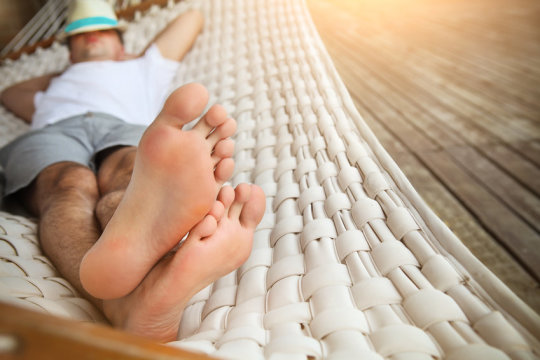[ad_1]
It seems that napping may do more than just reboot our energy level and improve our mood. New research being presented at the American College of Cardiology’s 68th Annual Scientific Session found that people who took advantage of a midday snooze were more likely to have a noticeable drop in blood pressure compared with those who didn’t nap.
“Midday sleep appears to lower blood pressure levels at the same magnitude as other lifestyle changes. For example, salt and alcohol reduction can bring blood pressure levels down by 3 to 5 mm Hg,” said Manolis Kallistratos, MD, cardiologist at the Asklepieion General Hospital in Voula, Greece, and one of the study’s co-authors, adding that a low-dose antihypertensive medication usually lowers blood pressure levels by 5 to 7 mm Hg, on average.
Overall, taking a nap during the day was associated with an average 5 mm Hg drop in blood pressure, which researchers said is on par with what would be expected from other known blood pressure-lowering interventions. In addition, for every 60 minutes of midday sleep, 24-hour average systolic blood pressure decreased by 3 mm Hg.
“These findings are important because a drop in blood pressure as small as 2 mm Hg can reduce the risk of cardiovascular events such as heart attack by up to 10 percent,” Kallistratos said. “Based on our findings, if someone has the luxury to take a nap during the day, it may also have benefits for high blood pressure. Napping can be easily adopted and typically doesn’t cost anything.”
This is the first study to prospectively assess midday sleep’s affect on blood pressure levels among people whose blood pressure is reasonably controlled, according to the researchers. The same research team previously found midday naps to be associated with reduced blood pressure levels and fewer antihypertensive medications being prescribed among people with very high blood pressure readings.
“The higher the blood pressure levels, the more pronounced any effort to lower it will appear. By including people with relatively well-controlled blood pressure, we can feel more confident that any significant differences in blood pressure readings are likely due to napping,” Kallistratos said.
The study included 212 people with a mean blood pressure of 129.9 mm Hg. They were 62 years old on average and just over half were female. About 1 out of 4 participants were smokers and/or had Type 2 diabetes. The groups were similar in terms of risk factors for heart disease except there were more smokers in the napping group. Researchers assessed and recorded blood pressure for 24 hours consecutively, midday sleep time (the average duration was 49 minutes), lifestyle habits (for example, alcohol, coffee and salt consumption, physical activity levels), and pulse wave velocity, a measure of stiffness in the arteries. Participants wore an ambulatory blood pressure monitor to measure and track blood pressure at regular intervals during routine daily living, rather than just one time in the clinic. At study recruitment, participants also underwent an echocardiogram, an ultrasound of the heart that shows its structure and function.
In their analyses, researchers adjusted for factors known to influence blood pressure levels, including age, gender, lifestyle and medications. There were no differences in terms of the number of antihypertensive medications taken between the two groups, and pulse wave velocity tests and echocardiograms were also similar.
Overall, average 24-hour systolic blood pressure was 5.3 mm Hg lower among those who napped compared with those who didn’t (127.6 mm Hg vs 132.9 mm Hg). When looking at both blood pressure numbers, people who slept during the day had more favorable readings (128.7/76.2 vs 134.5/79.5 mm Hg). There also appeared to be a direct linear relationship between time asleep and blood pressure; as reported, for each hour of napping, the average 24-hour systolic blood pressure lowered by 3 mm Hg.
“We obviously don’t want to encourage people to sleep for hours on end during the day, but on the other hand, they shouldn’t feel guilty if they can take a short nap, given the potential health benefits,” Kallistratos said. “Even though both groups were receiving the same number of medications and blood pressure was well controlled, there was still a significant decrease in blood pressure among those who slept during midday.”
Researchers said the findings are further bolstered because patients had similar dipping blood pressure rates at night (natural drops during nighttime sleep), meaning that any reductions in ambulatory blood pressure were separate from this phenomenon and give greater confidence that reductions in ambulatory blood pressure could be due to daytime napping.
Further research is needed to validate these findings. Although it falls outside the scope of this study, researchers said one could speculate that along with the heart-healthy Mediterranean diet endemic to this region, the cultural acceptance of midday napping may also play a role in the healthier profile seen in these populations.
Nearly half of American adults have high blood pressure. Many don’t know they have it because there are often no signs or symptoms; over time, high blood pressure increases the risk of both heart attack and stroke.
Kallistratos will present the study, “Mid-day Sleep Effects as Potent as Recommended Lifestyle Changes in Patients With Arterial Hypertension,” on Monday, March 18.
[ad_2]















